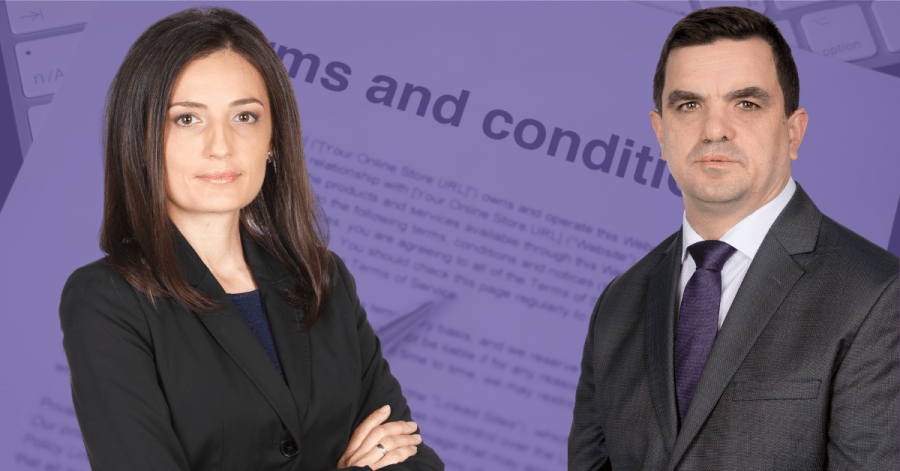Diana Dimova and Atanas Mihaylov are senior lawyers at Kinstellar Bulgaria. Diana is the Managing Partner and co-head of M&A, Corporate and Private Equity. Atanas is a Counsel and head of Tax. Their firm is Emerging Europe and Central Asia’s leading independent law firm. With offices in 11 jurisdictions and over 350 local and international lawyers, it handles some of the most significant M&A and corporate deals in the TMT, finance, energy, and real estate industries by delivering consistent, joined-up legal advice and assistance across diverse regional markets. Kinstellar’s specialty is complex cross-border transactions. They share what corporate managers and founders need to know when identifying the right earn-out structure.
Over the past few years, the CEE region has been the focus of vibrant M&A activity in the technology sector. Bulgaria is no exception, with a number of acquisitions completed in IT services, software development, gaming, e-commerce, and digital services. A notable trend in the structuring of these transactions is the growing use of earn-out payment structures. In our recent practice, earnouts have been agreed upon in the majority of the acquisitions of tech companies by their founders.
While previously earn-outs were not very popular in Bulgaria, such structures have become key to successful acquisitions. They are a useful tool to bridge the different purchase price expectations of the buyer and the seller by providing a significant contingent payment to the seller post-closing if certain benchmarks are reached.
When acquiring a technology business from its founders, the buyer is usually interested to retain them for a certain period after the completion of the sale. Offering an earn-out structure is an approach that proves to be effective in keeping founders at the company. The earn-out payment is calculated on the basis of the results achieved by the target during the earn-out period, which helps preserve an acquired company’s value and ensure further growth and smooth integration into the buyer’s business. In turn, the sellers benefit from the arrangement as it maximizes the purchase price for their business by driving growth and achieving a value higher than what the buyer is prepared to pay for at completion. In some of our recent cases, the earn-out component was quite substantial relative to the purchase price payable at completion.
Identifying the right earn-out structure
Acquisition of any specific technology business can face various challenges and requires a custom approach to identifying the right earn-out structure. The following questions are commonly raised: Who is eligible for an earn-out? What formula should be used? Which KPIs should be incorporated into that formula? What level of protection is each buyer and seller entitled to during the earn-out period following completion?
In essence, the proper earn-out structure should accommodate both the business goals and the legal means to achieve them, which are not always easy to align.
The business goals are clear: from the business perspective, the earn-out structure should both motivate the sellers to stay with the target company and enable them to run the business in a sufficiently autonomous way to maximize profit and increase value through the earn-out period, without harming the long-term prospects of the business.
The legal means to achieve the business objectives include devising a clear mechanism for the determination of the earn-out payments (including avoiding uncertainty regarding the purchase price), reduction of potential areas of disputes between the parties, and setting up an appropriate dispute resolution mechanism to resolve disputes between the parties.
Structural issues when negotiating earn-outs in Bulgaria
Negotiating earn-out arrangements in Bulgaria can be complicated and can impact the transaction timeline. Several structuring issues regularly recur during negotiations.
Firstly, earn-outs are negotiated to be predominantly in cash rather than in shares issued by the buyer, and the main reason is tax. As soon as the earn-out is received, the founders may have to pay tax on their earn-out income (to the extent that it does not qualify as employment income) but might not have such cash available and could face difficulties to generate sufficient cash when tax becomes due.
Secondly, earn-outs in Bulgaria are typically calculated by reference to EBIDTA. While this looks straightforward, sometimes disputes arise during negotiations on the underlying accounts to be used for the calculation of earn-out payments. As smaller Bulgarian target companies typically use Bulgarian National Accounting Standards, foreign buyers usually insist on the application of IFRS, which may produce different results upon the calculation of the performance metrics. Further, buyers often insist on specific adjustments to the underlying earn-out accounts (to include or exclude the effect of certain elements). This may affect the sellers’ entitlement to an earn-out payment or the amount of earn-out payments to which the founders are entitled. Тhis often comes as a surprise to the sellers.
Thirdly, earn-outs in Bulgaria are generally negotiated as a fixed sum upon achieving a specific EBITDA result, and if that KPI is not achieved, no earn-out is due. Sometimes earn-out payments are agreed on a sliding scale (e.g., the amount of the earn-out depends on the amount of the achieved EBIDTA). We have also seen cases where earn-out payments are calculated as a percentage of the EBIDTA achieved in excess of a certain threshold, although such an arrangement in Bulgaria is rare.
Business operations during the earn-out period
Since the achievement of the KPIs that give rise to the earn-out payments depend on how the business is operated after the completion of the sale, the sellers normally seek to restrict the influence of the buyer over the business, or at least to diminish their influence over the metrics based on which earn-out payments are calculated. Different restrictions are heavily negotiated, depending on the bargaining powers of the parties. These may include limitations on intra-group transactions or requirements to enter into such transactions on arm’s length terms, prohibitions of expenditures above certain thresholds, requirements to maintain normal business operations, a prohibition against subsequent mergers that affect the KPIs, etc.
Protection from early termination
Earn-out payments help buyers avoid the risk of a founder’s early termination of services by tying payment of the full earn-out amount to the founder’s continuous employment with the target company throughout the entire earn-out period. An early departure by a seller without ‘cause’ or termination by the target company in case of a material breach of the employment or service contract, breach of non-compete covenants, or fraud could qualify the leaver as a ‘bad leaver’, thus depriving him/her of the respective earn-out payments. Given the severe consequences, much time is usually spent on defining the list of ‘bad leaver’ events. Sellers push hard to shorten the list and exclude such events that are outside of their control or may happen by accident (such as administrative offences). Usually, sellers insist that any leaver event which is not a ‘bad leaver’ event be qualified as a ‘good leaver’ event thus preserving the right of the leaving seller to the full earn-out amount. Conversely, buyers aim to define the ‘good leaver’ events narrowly.
In order to carve out objective reasons that prevent sellers from continuing their involvement in the business, parties often negotiate a list of ‘intermediate leaver’ events, such as illness or incapacity. In such cases, leavers are still entitled to an earn-out payment, albeit a reduced one.
Once the circumstances in which an employee may depart and their effect on the earn-out have been agreed in the main transaction documents, lawyers need to carefully reflect these in Bulgarian-law-governed employment agreements to ensure that the respective contracts can be terminated lawfully, given the strict grounds and procedures for unilateral termination of an employment relationship under Bulgarian law.
Despite different challenges in structuring and negotiating earn-out arrangements, such are commonly agreed upon today in technology M&A transactions in Bulgaria. Both sellers and buyers have long recognized the benefits and actively pursue them. While negotiations are often complex due to the need to balance the interests of both parties, once a commercial agreement on earn-outs is in place, a proper earn-out structure that reflects the aspirations of both sides can be achieved.







